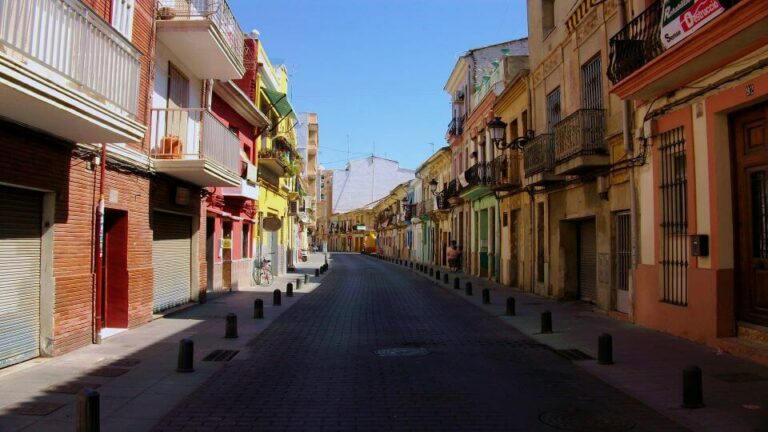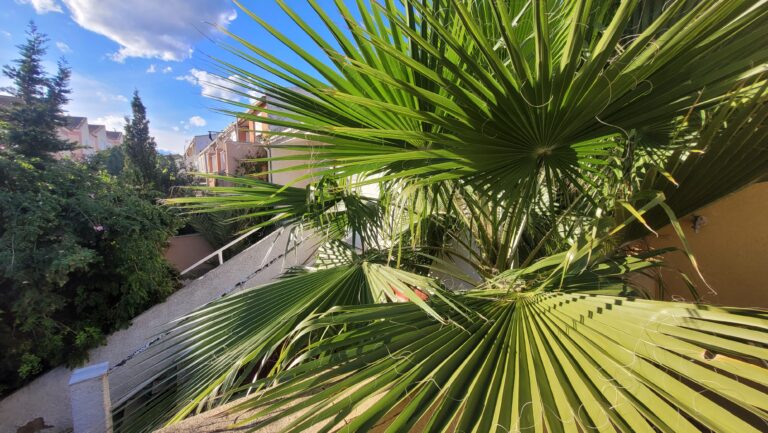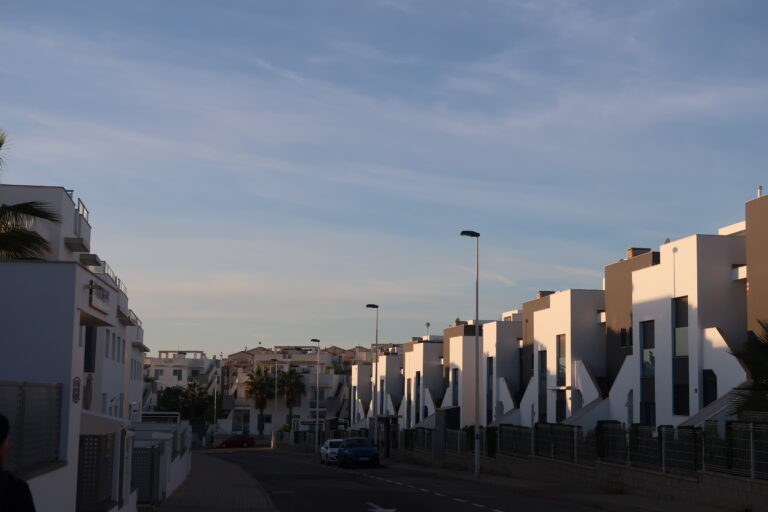Tourist apartments
Turistiasunnot
I actively follow the Costa Blanca News Channel on Facebook. The website is maintained by Annukka Valtanen, who has lived most of her life in Spain. Annukka writes a lot of interesting articles in which she deals with everything that is happening in Spain, especially in the Costa Blanca region. Being proficient in the Spanish language, he can dive deeper than the surface into the affairs of society. With Annuka’s permission, I am publishing her article.
”There are constant news about how tourist apartments are a big problem in some cities. Some municipalities have started to limit them, others have revised their rules. For example, Fuengirola no longer issues new permits for apartments that do not have their own separate entrance, so that the neighbors are not disturbed by this activity. In Seville, a campaign has been started to eradicate illegal apartments from the market. For example, planning to cut off the water until the apartment situation is legalized. This is how they plan to remove 5,000 illegal tourist apartments from the market. Barcelona plans to end all tourist apartment permits at the end of 2023, but at the beginning of 2024, more than 10,000 apartments were advertised. The restrictions set by the city have not been effective and the neighbors are asking for tougher measures. Tourism is good for the city only if it is properly managed and does not cause damage to permanent residents. Neighbors complain that often tourists come to Valencia and behave in a way that would not be allowed, and it would not even occur to them in their homes, and they do not take into account that the people who live next door live everyday life and have to go to work and they want to sleep at night. The autonomy administration is developing a program that uses artificial intelligence to search for illegal tourist apartments. It is expected to be ready for use in 2025. The autonomous legislation is also planned to be changed.
The number of tourist apartments is very unevenly distributed in different locations. Others blame tourist apartments for the skyrocketing rise in rental prices, but rents have also risen in places where there are very few such apartments. Some experts blame the housing policy of the last ten years when no suitable housing has been built at all for the population of lower-income categories by private builders and not by the state or the autonomies. Now, for example, it is very difficult for those working in the field of tourism to find a tolerably priced apartment near their workplace. In places like Ibiza, a rental apartment that could be paid for with a regular salary is becoming a utopia for many summer workers who have to refuse work due to the housing shortage. Tourist apartments in apartment buildings where ordinary people live, cause disturbances and dirtiness. Traditional shops are also disappearing in areas where there are no longer enough regular customers and city centers are filled with restaurants and souvenir shops, and locals have to go further afield for regular shopping. Many owners try to avoid registering their apartments as tourist apartments and consider them as ”seasonal rental apartments” which fall under a different law. The government intends to change the law to reduce this fraud in relation to rental apartments by adapting it to the European norm and requiring the rental use of apartments to be clarified and registered as a tourist apartment whenever it is rented for less than a year and advertised on some digital platform. The EU requires this to be implemented before May 2026. The same group would include rental rooms houseboats, etc. The apartments will have a uniform single registration number. This problem has exploded worldwide and the cities that are fighting it, such as New York, Venice, Berlin, Amsterdam, Rome, Paris, etc….none of them have come up with a good way so far to adapt the daily life of the inhabitants to mass tourism or cruise ships taking over the cities. Even tiny Bhutan in the Himalayan mountains has imposed an expensive daily fee on tourists to prevent over-tourism. Japan is thinking about what to do with growing tourism. Everyone is wondering if tourism can be limited. What can be done to prevent the negative effects of mass tourism without preventing the arrival of tourists? How can permanent residents be guaranteed a normal life in their hometowns and the opportunity to also live in the city centers in areas now taken over by tourists? The anti-tourism activity of locals visible in Spain is comparable to what happens elsewhere in the world. New York banned tourist apartments and now hotels are running full steam. However, this has not helped with the housing shortage but has only increased the prices of hotel rooms and tourists’ interest in the city has not decreased. This trick has effectively blocked the possibility of families staying in New York at a tolerable price, and now they are looking for surrounding municipalities, where there are still tourist apartments. It is feared that the same thing will happen in Barcelona, that only high-income tourists will be able to come to the city, always staying in more expensive hotels, and ordinary citizens will be prevented from traveling there when hotel prices rise as demand increases when tourist apartments are not available. Hotel companies have nothing against restricting tourist apartments, but many experts do not see it as bringing relief to the rental market or a drop in prices, because there is a shortage of apartments when no new ones have been built. In Venice, cruise ships were limited to a minimum, but this has not made mass tourism easier, as its share in any case was only 4% of all tourism in the city. Now you have to pay €5 a day there if you don’t stay in the city. Even this has not limited the number of visitors at all, but it has grown continuously. Airbnb, on the other hand, mentions that it understands that apartments are expensive throughout Europe, but does not accept the idea that the reason is tourist apartments, because, for example, according to the Spanish State Statistics Office, they are only 1.3% of the housing stock in Spain. Airbnb has promised not to publish ads for apartments that do not have a tourist apartment registration number.
It is estimated that Spain will receive the most tourists in the world before 2040 and it is believed that it will overtake France and receive 110 million tourists. There is a lot of work in the tourism sector that brings joy to both visitors and recipients and that everyone can enjoy their life, regardless of whether they are on vacation or at work. It is necessary to invent new ways and invest in the sustainable development of tourism so that it does not suffocate in its success.”
Turistiasunnot
Seuraan aktiivisesti Costa Blancan Uutiskanavaa facebookissa. Sivustoa ylläpitää Annukka Valtanen, joka on asunut suurimman osan elämästä Espanjassa. Annukka kirjoittaa paljon mielenkiintoisia artikkeleita, joissa hän käsittelee monipuolisesti kaikkea sitä mitä Espanjassa tapahtuu ja varsinkin Costa Blancan alueella. Espanjan kielen taitoisena hän pystyy sukeltamaan pintaa syvemmälle yhteiskunnan asioihin. Annukan luvalla julkaisen hänen artikkelinsa.
”Jatkuvasti on uutisia kuinka turistiasunnot ovat suuri ongelma joissakin kaupungeissa. Toiset kunnat ovat alkaneet rajoittaa niitä, toiset tarkistaneet sääntönsä. Esimerkiksi Fuengirola ei enää anna uusia lupia asunnoille joilla ei ole omaa erillistä sisäänkäyntiä, että naapurit eivät häiriinny tästä aktiviteetista. Sevillassa on aloitettu kampanja jolla halutaan kitkeä laittomat asunnot pois markkinoilta. Niiltä esimerkiksi aiotaan katkaista vesi kunnes asunnon tilanne on laillistettu. Näin aiotaan poistaa n 5000 laitonta turistiasuntoa markkinoilta. Barcelona aikoo lopettaa kaikki turistiasuntoluvat ennen vuotta 2030. Valenciassa oli vuoden 2023 lopussa rekisteröity 5747 turistiasuntoa, mutta vuoden 2024 alussa nettialustoilla mainostettiin yli 10 000 asuntoa. Kaupungin asettamat rajoitukset eivät ole tehonneet ja naapurit pyytävät kovempia otteita. Turismi on hyväksi kaupungille vain jos se on oikein hallittu eikä aiheuta vahinkoa vakituisille asukkaille. Naapurit valittavat että usein turistit tulevat Valenciaan ja käyttäytyvät tavalla jota ei sallittaisi, eikä se tulisi heille edes mieleen heidän kotipaikoillaan, eivätkä ota huomioon että vieressä asuvat elävät arkea ja joutuvat käymään töissä ja haluavat nukkua öisin. Autonomian hallinto on kehittämässä ohjelmaa joka käyttää tekoälyä etsimässä laittomia turistiasuntoja. Sen odotetaan olevan käyttövalmis vuonna 2025. Samoin autonomista lainsäädäntöä aiotaan muuttaa.
Turistiasuntojen määrä on hyvin epätasaisesti jakautunut eri paikkakunnilla. Toiset syyttävät turistiasuntoja huimasta vuokrahintojen noususta, mutta vuokrat ovat nousseet myös paikkakunnilla joissa tällaisia asuntoja on hyvin vähän. Jotkut asiantuntijat syyttävät viimeisten kymmenen vuoden asuntopolitiikkaa, jolloin ei ole rakennettu sopivia asuntoja lainkaan markkinoille alhaisempien tuloluokkien väestölle yksityisten rakentajien eikä valtion tai autonomioiden taholta. Nyt on esimerkiksi turismin alalla työskentelevien hyvin vaikeaa löytää siedettävän hintaista asuntoa työpaikkojen lähistöltä. Paikoissa kuten Ibiza, vuokra-asunto jonka pystyisi maksamaan tavallisella palkalla, alkaa olla utopiaa monelle kesätyöläiselle jotka joutuvat kieltäytymään töistä asuntopulan vuoksi. Turistiasunnot kerrostaloissa joissa asuu tavallista väestöä, aiheuttavat häiriöitä ja likaisuutta . Myös traditionaaliset kauppaliikkeet katoavat alueilta joissa ei ole enää riittävästi vakituisia asiakkaita ja keskustat täyttyvät ravintoloista ja matkamuistomyymälöistä ja paikalliset joutuvat lähtemään kauemmaksi tavallisille ostoksille. Moni omistaja koittaa välttää rekisteröimästä asuntojaan turistiasunnoiksi ja pitää niitä ”kausivuokra-asuntoina” jotka kuuluvat eri lain piiriin. Hallitus aikoo muuttaa lakia vähentääkseen tätä vilppiä vuokra-asuntojen suhteen mukauttamalla sen Euroopan normatiiviin ja vaatimalla asuntojen vuokrakäytön selvitystä ja rekisteröimistä turistiasunnoksi aina kun sitä vuokrataan alle vuodeksi ja mainostetaan jollakin digitaalisella alustalla. EU vaatii tätä toteutettaviksi ennen toukokuuta 2026. Samaan ryhmään kuuluisivat vuokrahuoneet ja asuntolaivat jne. Asunnoille tulee yhtenäinen yksi ainoa rekisterinumero. Tämä ongelma on räjähtänyt käsiin maailmanlaajuisesti ja sen kanssa taistelevat kaupungit kuten New York, Venetsia, Berliini, Amsterdam, Rooma , Pariisi jne…..mikään niistä ei ole keksinyt hyvää keinoa toistaiseksi sopeuttaa asukkaiden arkielämää massaturismiin tai risteilylaivojen kaupunkien valtauksiin . Jopa pieni Butan Himalajan vuoristossa on laittanut turisteille kalliin päivämaksun estääkseen liian turismin. Japani miettii mitä tekisi kasvavalle turismille. Kaikki miettivät voiko turismia rajoittaa ? Mitä voidaan tehdä estämään massaturismin haittavaikutukset estämättä turistien tuloa? Miten taataan vakituiselle asukkaille normaali elämä kotikaupungeissaan ja mahdollisuus asua myös keskustoissa nyt turistien valtaamilla alueilla? Espanjassa näkyvä paikallisten turisminvastainen toiminta on verrannollista muualla maailmalla tapahtuvaan. New York kielsi turistiasunnot ja nyt hotellit toimivat täyttä häkää. Tämä ei kuitenkaan ole auttanut asuntopulassa, vaan on vain nostanut hotellihuoneiden hintoja ja turistien kiinnostus kaupunkia kohtaan ei ole laskenut. Tällä tempulla on estetty tehokkaasti perheiden mahdollisuus majoittua New Yorkissa siedettävään hintaan ja nyt he hakeutuvat ympäristön kuntiin, missä turistiasuntoja edelleen on. Barcelonassa pelätään tapahtuvan samaa, että kaupunkiin voi tulla vain hyvätuloiset turistit aina kalliimpiin hotelleihin ja tavallisten kansalaisten matkat sinne estetään kun hotellien hinnat nousevat kysynnän kasvaessa kun turistiasuntoja ei ole saatavilla. Hotelliyrityksillä ei ole mitään turistiasuntojen rajoittamista vastaan, mutta moni ekspertti ei näe sen tuovan helpotusta vuokramarkkinoille eikä hintojen laskua, koska asunnoista on pulaa kun ei ole rakennettu uusia . Venetsiassa rajoitettiin risteilyalukset minimiin, mutta se ei ole helpottanut massaturismia, koska sen osuus joka tapauksessa oli vain 4% kaikesta kaupungissa käyvästä turismista. Nyt siellä täytyy maksaa 5€ päivästä jos ei yövy kaupungissa. Tämäkään ei ole rajoittanut yhtään kävijöiden määrää, vaan se on kasvanut jatkuvasti. Airbnb puolestaan mainitsee että ymmärtää asuntojen olevan kalliita koko Euroopassa , mutta ei hyväksy ideaa että syynä olisivat turistiasunnot, koska niitä on esimerkiksi Espanjan valtion tilastokeskuksen mukaan vain 1,3% asuntokannasta Espanjassa . Airbnb on lupautunut olemaan julkaisematta mainoksia asunnoista joilla ei ole turistiasunto-rekisterinumeroa.
Espanjassa arvellaan käyvän maailman eniten turisteja ennen vuotta 2040. Turistien määrä kasvaa Ranskan ohi ja on lopulta jopa 110 miljoonaa kävijää vuodessa. Turismi sektori tulee työllistämään paljon ja siitä on iloa niin matkailijoille kuin espanjalaisillekin. Kaikki voivat nauttia elämästään, riippumatta siitä ovatko lomalla vai töissä. On keksittävä uusia keinoja ja panostaa turismin kestävään kehitykseen ettei se tukehdu omaan menestykseensä.”







